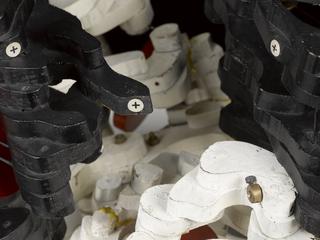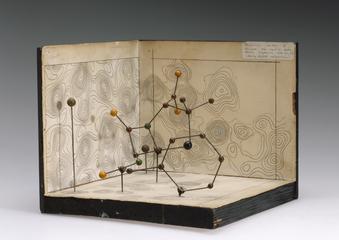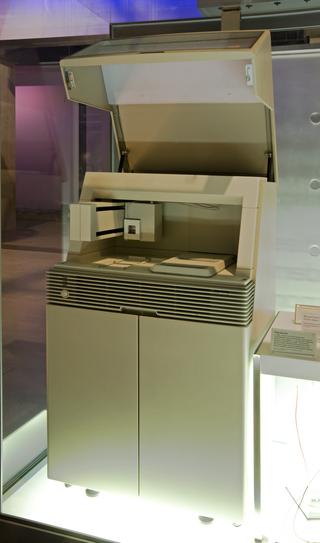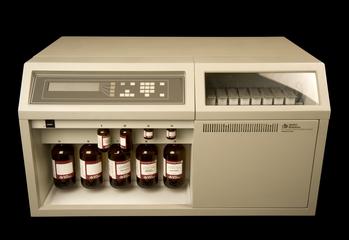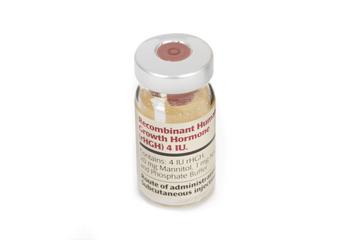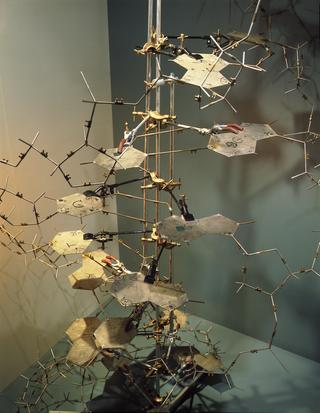
PacBio RSII genome sequencer
- Made:
- 2013 in United States
PacBio RSII genome sequencer, made by Pacific Biosciences, United States, 2013
The PacBio RSII is a genome sequencer, a machine able to read the sequence of DNA and RNA bases that make up a genome. It was made by Pacific Biosciences an American biotechnology company founded in 2004. The RSII was first commercially released in 2013. This machine was used at the Wellcome Sanger Institute, a genomics research institute, between 2011 and 2018. The RSII has been used in human genome research, mapping the genomes of animals such as the Golden Eagle, and in bacteria studies at the Wellcome Sanger Institute.
The RSII is one of a group of sequencing technologies, known as ‘Third Generation long-read sequencers’, that became commercially available from the mid to late 2000s. These sequencers use a different approach to earlier machines to read DNA molecules, and they are able to produce long reads of DNA sequences which can have advantages over earlier short-read techniques, including accuracy and the ability to sequence highly repetitive stretches of genomes.
The RSII uses a technique called ‘single molecule real time sequencing’ (SMRT), developed by Craighead, Korlach, Turner and Webb at Cornell University, commercialized by Pacific Biosciences (PacBio) since 2011. This machine generates a DNA sequence by detecting differences in light emitted by bases of DNA (adenine, thymine, cytosine, or guanine) which are bound to different light emitting chemicals as they pass through a nanofluidic chip called a SMRT Cell, featuring millions of tiny wells called zero-mode waveguides.
Details
- Category:
- Biochemistry
- Object Number:
- 2024-454
- Materials:
- plastic (unidentified), metal (unknown) and electronics
- Measurements:
-
overall: 1580 mm x 2004 mm x 770 mm, 1091 kg
- type:
- dna sequencer
- credit:
- Wellcome Sanger Institute
